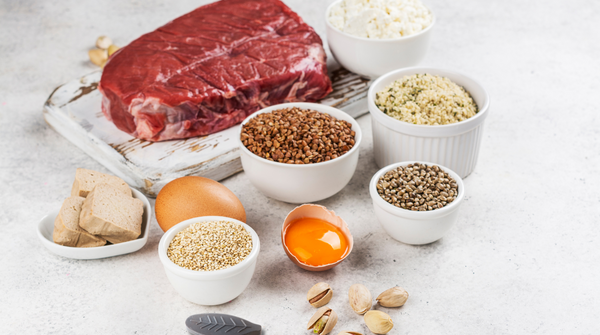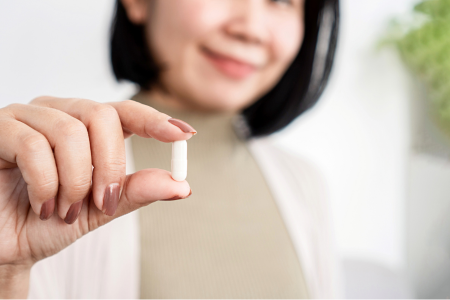Menstruation: Preventing Iron Deficiency with the Lucky Iron Fish
Heavy periods are a common cause of iron deficiency, but you can get on top of your losses. Read on to find how you can make the Lucky Iron Fish work for you.

By Ashley Leone, RD
We often assume men need more nutrients because of their larger average body size. But, this is not the case for iron. Younger and middle-aged women need more than double the iron of men. The reason for this is quite simple - menstruation.
The amount of iron lost during menstruation varies by each woman, but those experiencing heavy bleeding will be most affected. Heavy periods are a common cause of iron deficiency, but you can get on top of your losses. Read on to find how you can make the Lucky Iron Fish work for you.
Iron Needs for Menstruating Women
Women (19-50 years): 18 mg/d
Vegetarian Women (19-50 years): 1.8 times higher (or 32 mg/d) to account for lower bioavailability of iron from plant sources.
Why Use the Lucky Iron Fish?
The first step to improve the iron content of your diet is to choose iron rich foods like meat, beans, and fortified cereals. If this isn’t enough or your diet limits these foods, the Lucky Iron Fish is a handy tool that adds about 5-10 mg of iron to your cooking water. The small dose of iron released from the Lucky Iron Fish limits side effects like nausea and constipation.
Handy Ways to Use Your Lucky Iron Fish
Here are some ideas for keeping up with your iron needs:
- Conquer your menstrual hunger with a hearty bean ragout, using the Lucky Iron Fish during preparation for an iron-rich meal. Serve with crusty whole grain bread and cheese or Marmite to boost your thiamin and riboflavin intake which may help relieve premenstrual symptoms.
- Feeling crampy? Drink a mug of Natural Menstruation Tea, prepared with a slice of ginger and a spoon of honey to quell nausea and potentially ease cramping.
- Satisfy your sweet tooth with a mango, banana, spinach smoothie made with Greek yogurt and Lucky Iron Fish Water.
Take time to recognize the symptoms of iron deficiency. Symptoms include fatigue, depressed mood, irritability, pale skin and brittle nails. If you notice these symptoms, particularly if they are pronounced, it is important to go and see your doctor. You may not know if you are at risk for low iron stores. Your doctor can advise you if iron supplementation is right for you.




